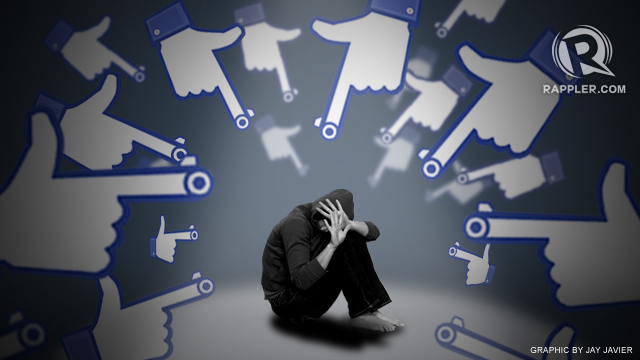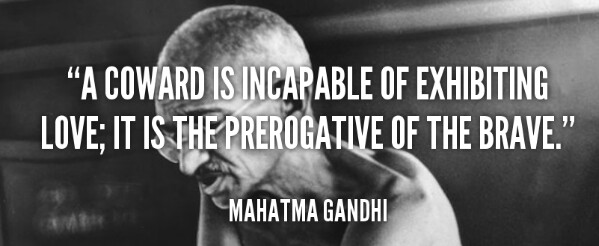Here is the first part of this post. Let’s enlarge the canvas a bit.
It’s a Friday night, 11 pm. A group of men and women are drinking in a pub in Mangalore. A mob storms in and beats them, besides vandalising the pub for “debasing Indian culture.”
A prominent politician has died and the commercial capital of the country is brought to a standstill. A girl posts on Facebook questioning the legality of the bandh. Her friend “likes” the post. They’re both booked and thrown into jail. In other news, the said politician’s party “workers” beat North Indian “bhaiyyas” black and blue ostensibly for taking up the jobs and works meant for the sons of the soil.
A Dalit man is decapitated for using, and in doing so, polluting the village mill, before the upper caste people could use it. Meanwhile, cow vigilantes brutally beat up members of a family of Dalits in another state who were skinning a cow carcass (you can find the viral video on YouTube too). Or, if you believe the vigilantes, who had killed the said cow. Meanwhile, one of the accused in the Dadri Lynching has died. His corpse is wrapped in the tricolour and his family given a compensation of ₹ 1 million while there’s still politics being played over what the lynching victims actually ate that night.
A political party gives ultimatum to two film makers not to use Pakistani actors in their films, or else….
The above paragraphs are all examples from contemporary India. While cynics will still justify each of these or point them out as exceptions, my question is –
What kind of a legacy are we leaving for our future generations?
All these examples have one thread in common — A group of people forcing their views or ways on others through the use of force, in other words, bullying.
You have a problem with one’s drinking – complain to the police.
Problem with a Facebook post – complain to the police.
Problem with someone else taking up the job meant for you, problem with my food habits, problem with any one of these – complain the police.
Make no mistake. Exclusivism and entitlement change colour with times.
We have laws in this country. We have a constitution and healthy, robust courts. If someone has any issue with something, he’s free to approach the concerned authorities about that. He has a right to espouse his own views. What he doesn’t have is the right to use physical, at times deadly, force. Aren’t such people bound by the constitution? Or are they above the law only because they have the clout and the muscle?
Every single one of us is free to have his views on how things should be and how the country should be run. But that’s about that. There are limits. And just as yours’, my freedom of expression and right to live is guaranteed to me by the constitution too. I am free to work anywhere I want and eat/drink whatever I want. Just because someone has political backing doesn’t mean he can do as he pleases, wrecking others’ lives.
A part of the blame goes to the authorities as well. Actor Nawazuddin Siddiqui was stopped from performing in the Ramlila in his ancestral village by members of a political party (the same one beating “Bhaiyyas”). The authorities buckle when there are threats of the situation “going out of hand.” Like really? A few goons say they’ll do so and so and you just roll over? Maintaining law and order is what you’re empowered and mandated to do. Who are those people to tell you what you should be doing? And I can’t understand how that party could be getting members and volunteers in the state whose residents it beats in its own backyard?
The issue is twofold here — personal freedom and respect for the country’s laws. Bullying the weaker sections into doing your bidding doesn’t make one a hero or a role model. There are laws, and they have been created for a reason. If every single one of us were to start beating and terrorising others without a care for them, imagine the state of anarchy in the country!
Make no mistake. Exclusivism and entitlement change colour with times. There was a time when Shaivs and Vaishnavas ( followers of Lord Shiva and Lord Vishnu respectively) used to kill each other for supremacy. Yes, two sects of the same Hindu religion! Today the hate is directed towards members of a different caste, a different religion, different state, different sexuality. Tomorrow the same hate might be directed towards someone else, and that someone else might be you.
We need to stop looking at people through these warped lenses. Hate blinds us to the simple realities of life, creating monsters where angels once treaded. The first step to solving a problem is recognising that we have one. As a people, we all have sometimes done and allowed things that shouldn’t have taken place in any age. Think of the time when you saw that kid being beaten in the school and didn’t stand up for him or inform the principal. Think of when you saw bullies taking over the space meant for discussion and knowledge and quietly slipped away, instead of fighting back. If you aren’t stopping a bully, you’re being complicit (wittingly or unwittingly) in his despicable act. Love all and be loved. Remember this :
I would love to know your views on the subject in the comments section. Thanks for reading.


This is a very well articulated viewpoint on bullying, its ramifications on our society and most importantly, the way the bullying mindset becomes a part of our collective consciousness.
Truly, the evil needs to be nipped in the bud by educating children and leading by example. We, as a nation, must repose faith in the judiciary and the machinery of law and order for the democratic principles to be upheld.
LikeLiked by 2 people
Every single one of us can make a difference. The things is to believe in that and follow the laws of the land. The earlier we teach the children about the perils of bullying, the better it’d be for the whole nation.
Thanks for the kind words and sharing your opinion. Appreciate it.
Happy blogging. God bless. 🙂
LikeLiked by 1 person
I love this! Heartbreaking the we have such intolerance in our modern world. ❤️
LikeLiked by 1 person
Thank you. Hopefully better sense will prevail, one day. 😊
LikeLike
Well said.
LikeLiked by 1 person
Thank you. 😊
LikeLiked by 1 person